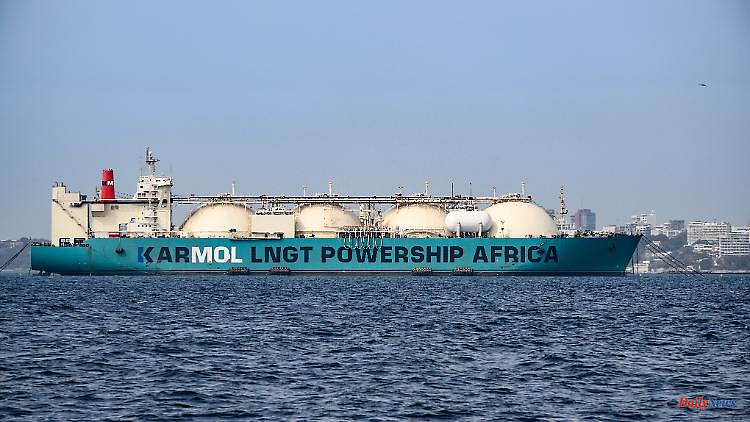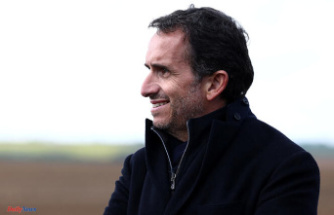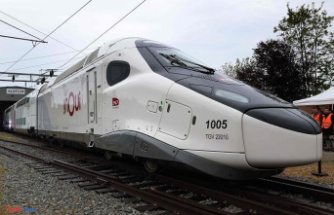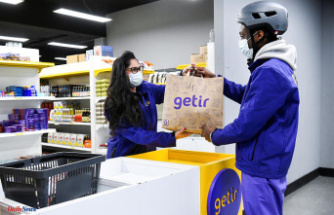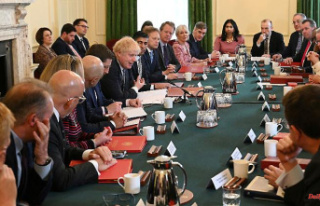The EU is looking for alternatives to gas from Russia. African countries can meet much of the demand. The visit of Federal Chancellor Olaf Scholz shows that a rethinking has also begun in Germany. African gas has become attractive. Cameroon-born oil and gas lawyer NJ Ayuk sees Chancellor Olaf Scholz's trip to Africa as an important sign at this point in time. However, Germany must hurry to invest in African natural gas, otherwise it will go to the Chinese - again.
ntv.de: Olaf Scholz was in Africa for the first time as German Chancellor. You met him in Senegal: how was his visit there received?
NJ Ayuk: Olaf Scholz's visit was enormously important for the African continent at this point in time. Scholz could have been in Davos earlier this week, he could have been in the US but went to Africa. That sends the right signal. It makes a lot of sense that Scholz wants to further develop the partnership with Africa - especially in the current global political situation. The Chancellor's visit met with great approval.
What role can Africa play for German and European energy security?
A huge role. Let's take the West African pipeline in Nigeria (Benin, Togo and Ghana are supplied with natural gas from Nigeria, ed.) as an example: This pipeline could be continued as an underwater pipeline. There are vast gas fields off Senegal and Mauritania that are currently being operated by BP and Kosmos Energy. This gas could flow towards Europe very quickly. That would be cheaper and better than Nord Stream 2. Another possibility would be a pipeline through Nigeria, Niger and Algeria towards Europe. That could also happen quickly.
How realistic would the pipeline from Nigeria to Europe be?
It's very realistic. It can go faster than people think. The Australian company WorleyParsons is currently conducting a feasibility study to see whether the pipeline could go through Senegal or through Niger and Algeria. OPEC spent a lot of money promoting this study. The pipeline could even be built underwater off Senegal and Mauritania and from there routed directly to Europe. It's safe and fast and then the gas is there. But the key is: These pipelines must be built in a way that is future-proof so that they can also transport green hydrogen and green ammonia gas. Niger, Senegal and Mauritania, for example, have great potential for green hydrogen. A German company has already signed a contract with the government of Niger. That means: Gas is the transition technology, but the technologies of the future must also be on the agenda. We have to be very aware of the goals for climate protection.
Are there other African countries that Germany could work with?
Mozambique for example. The country will develop from scratch into one of the largest gas producers in the world. They just need to improve their infrastructure. This is about the next few years. The Italians are already investing in Congo and Mozambique. The Germans should now follow suit. Namibia, which has historical proximity to Germany, has just discovered huge amounts of natural gas deposits.
Was it a mistake that Germany and other countries made it much more difficult to finance and develop new fossil deposits?
Yes, that was a mistake. We clearly criticized Germany for insisting that no natural gas should be developed in Africa and that investments should only be made in green technologies. Don't forget that in Africa 600 million people do not have access to electricity. 900 million people do not have access to clean cooking facilities - most of them are women. Fuel poverty is very real here. A German family uses more electricity with their fridge than many Africans use in a whole year. We have a problem here with access to energy. Germany uses gas and coal to grow. But with this advance, they didn't want to grant that to Africa - at least that's how many people interpreted it at the time. The fact that the chancellor was there now defused this discussion somewhat.
Is Germany too late when it comes to liquefied natural gas (LNG)? Contracts with other countries have already been signed and China, as always, is at the forefront...
Treaties have been signed, but Germany is not too late. Again, Mozambique is a good example. Yes, the Asians have signed long-term purchase contracts. But Germany now has a really great opportunity to negotiate with companies and, for example, the government in Namibia to speed up LNG projects.
However, one should also not forget: The real gas "monster projects" are in Nigeria. They are ready, and there are actually no obstacles. But the Germans have to guarantee the financing. Japan has just invested money - also South Korea and China. Countries make an upfront payment of one to two years and then eventually get the benefits of LPG. What Germans should know: LNG projects are much faster these days. Instead of taking years to complete, they can be completed in 16 to 18 months. The Germans have to pay the euros quickly, otherwise the Chinese will actually do it and then Germany would have to buy African gas from Asia.
Finally, the most important question: can Africa solve Europe's energy problem?
Yes, African countries can solve Europe's energy dependency - provided there is investment. That's the status quo. There is a tremendous amount of resources in Africa. Germany is building two LNG terminals. But where will the gas come from? You can't plan long-term with gas from the US, which is four times as expensive. That wouldn't work in the long run. Russian gas is the cheapest, but gas from Africa is right behind. And the advantage: it will come from countries that are close to Germany. At the same time, there are long-term initiatives that help the continent of Africa. This is now about a partnership on an equal footing and not just about "development aid", as has always been the case in the past.
Philipp Sandmann spoke to NJ Ayuk

